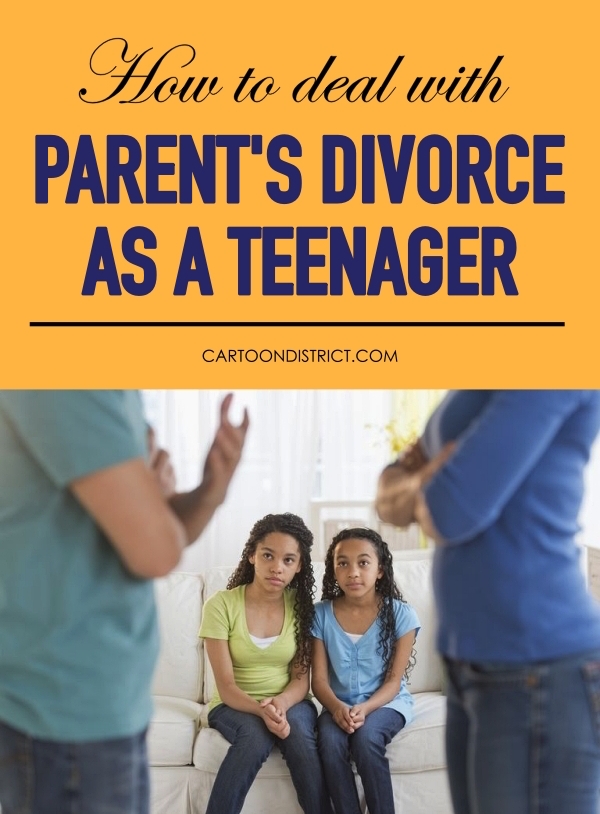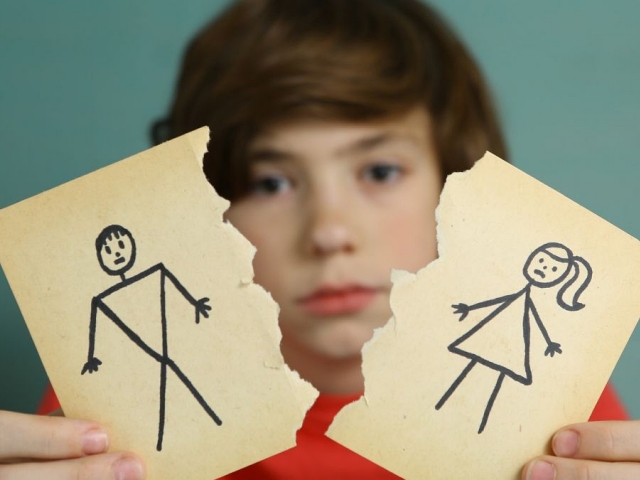The news of their parents getting a divorce is a psychological shock for any child, no matter what their age. However, teenagers, in particular, can feel incredibly vulnerable and emotionally hurt while dealing with parents’ divorce. It is a turning point that many teenagers didn’t see coming, and therefore, they have no idea how to deal with it. Unlike younger children, teenagers are often left to their own devices during a divorce, as parents often make the mistake of assuming that as young adults, they are mature enough to understand and cope with the fallout of their family. But this is just not true.

If you are among those teenagers coping with the divorce of your parents, then knowing certain things could make all the difference in the kind of relationship you will end up having with your parents during and after the divorce. Keeping the following information in mind, you might be able to avoid burdening yourself with disappointment, resentment, and bitterness that could pile up and haunt you your entire adult life. As bad as things might feel right now, you will overcome your grief in time. Meanwhile, you can try the below-provided suggestions, which will help you to know how to deal with parents divorce as a teenager.
Tips to Deal With Parents’ Divorce as a Teenager
Always remember, it’s not your fault.
This is the very first step towards acceptance and healing, but most importantly, it is true. Teenagers tend to make everything about themselves. It is not particularly their fault, as adolescence is a tricky time for anyone. But what does end up happening, in most cases, is that teenagers start to unnecessarily place the blame for their parent’s divorce onto themselves. This can be a very traumatic experience that no one should go through. This is why it is important to grasp that your parents going through a divorce is no one’s fault. It is happening because they are not happy with each other anymore and are not being able to live with each other. Any explanation other than that is an inaccurate understanding of what is happening and a devastatingly dangerous assumption to make.

Remembering to keep yourself out of the equation is the key to avoiding cutting yourself out from everyone you know and love and remaining open to listening and understanding.
Be aware and accepting of your emotions.
According to scientists, the human prefrontal lobe doesn’t completely form until the age of 25-26. That means that our minds are not fully developed until we are in our mid-20s. Thus, no matter how mature you think you might be, you are still likely to feel a range of emotions that will leave you perturbed and uncomfortable. These emotions are natural for anyone to feel in these circumstances. Acknowledging that what you are feeling is completely normal will help you deal with them properly. On the contrary, if you keep negating them, pushing them under the rug, or ignoring them, they might boil up and turn into extreme anger and hatred. Quite often, teenagers coping with the divorce of their parents, start behaving abusively towards their parents, by shouting at them or calling them names.

This can be a slippery slope and might bring out the worst in you. Thus, to avoid falling into these dangerous behavioral patterns, you must make peace with your emotions and try to communicate them to each of your parents, calmly and honestly. Don’t bottle them up inside and keep on pretending as if everything is fine.
Communication is key
People are indeed different, and not everyone reacts in the same manner to a life-altering event such as their parent’s divorce. However, it has been observed by psychologists that while younger kids experience grief and act out by becoming more clingy, teenagers tend to perceive divorce as a betrayal and a referendum that their previous life has been nothing more than a lie. This kind of perception leads them to pull away from their parents, and in some cases detach themselves from people in general. But this is not helpful at all. What you need to do is to communicate what you are feeling, even when what you are feeling is unpleasant and unsavory for someone else to hear. And you have to do this not just with your parents, but also your friends and other close people in your life. Ask them for their support. It is often difficult for people to articulate themselves and ask for support when they need it. It would probably be very difficult to start the sentence, ” My parents are divorcing…”, however, isolating yourself from others, and being alone with just your thoughts for too long could be extremely harmful.

Anger and grief can blind us to some obvious truths. We need others, not just to gain support but also to garner some much-needed perspective. It is crucial to choose someone trustworthy and reliable with whom to share your emotions. Sharing your innermost thoughts and feelings with entrusted ones will help you immensely in coming to terms with your parent’s divorce.
Keep an open mind and heart!
If you have gathered enough courage to be vulnerable and share your thoughts, emotions, and grievances with your parents, then you must also keep an open mind, and more importantly an open heart, when it comes to listening to what they have to say. If you are too preoccupied with your interpretation of the scenario and are not willing to give your parents the benefit of the doubt, you won’t be able to have an honest, in-depth conversation with them.

It will all devolve into blaming and shaming, which won’t do anyone any good in the long run. Yes, you might be going through a very hard time, and you may feel like siding with one of your parents, and penalizing the other parent who you think is responsible for the ordeal, but avoid it.
Often, adolescents become quite angry towards one parent while becoming protective of the other parent. There is still a lot for them to learn, including the reality that often things are not black and white. There is a lot of grey area in between. Thus, placing your parents into one category or the other is likely not to resolve anything. The only way you can begin to understand your parents is to listen with empathy to what they have to say. It takes a bigger heart to let your grief subside and not overwhelm your reason. This difficult task will become easier once you have motivated yourself to have a genuine willingness to listen.
Shape your response to it, do not let it shape you.
Unlike movies and TV shows that often paint an image of adorable and mature teenage characters coming of age while there are parents going through a divorce, the reality is quite the opposite. In general, most adolescents have no clue about how to deal with their parent’s divorce. While trying to navigate school, friends, and maybe their own relationships, it can be disconcerting and heartbreaking to watch their home life fall apart. The only remedy is to not let the grief define your outlook towards life. Unfortunately, some studies suggest that the divorce of parents can affect teenagers well into their adulthood. They can experience self-protective fear and reluctance to enter committed relationships. Many adolescents develop deep trust issues and have difficulties connecting with people. If you allow this distrust to take deep roots, it can lead to other behavioral problems that can affect your own sense of self and how you go on to formulate relationships in the future.

You have to catch yourself every time you might find yourself falling into these behavioural pitfalls. You have to remember a simple fact, trust is the foundation of human relationships, and relationships are what gives meaning and purpose to our life. Hence, living without trust is not living at all.
When dealing with parents’ divorce as a teenager, all you can do is to try your best to stay positive. Your parents were not happy together, which means now that they are divorced, they can go after their happiness. You should support them by pursuing happiness of your own and aspiring for a better future.
